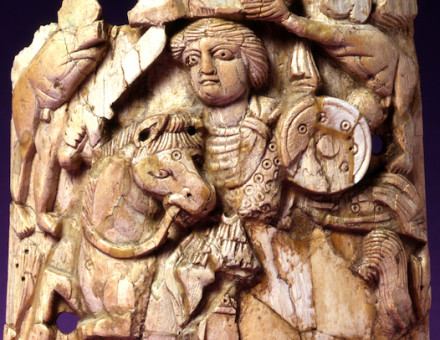In the Medieval Moment
The past is more than a set of events with an inevitable outcome. Historians must strive to capture it in all its fascinating strangeness, argues Chris Wickham, as he ponders the problems of writing about the Middle Ages.
When did the modern world begin? To Renaissance intellectuals, it was obvious, it was right then; and thinkers distinguished their own time as 'modern' in comparison with the ancient world which they saw themselves as reviving. The 1,000 years between were relegated to the 'middle', in a terminology that has stuck. But there have been plenty of other claims to the title. The French Revolution and the subsequent political and cultural changes of the early 19th century have been seen by a generation of French scholars to be the origin of 'modernity'; for similar reasons, though more economic in focus, the Industrial Revolution has seemed a key moment of change to British historians.





